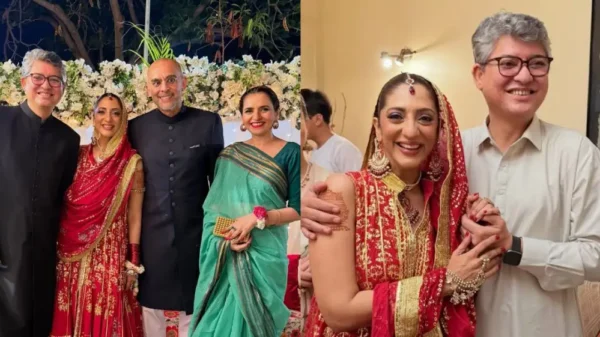Neelam Muneer, adored for her timeless charm and captivating performances since her debut as a child star, remains one of Pakistan’s most beloved actresses. Known for her effortless beauty and poise, she has always kept her skincare secrets under wraps—until now.
A recent revelation on The Nadia Khan Show has thrown the internet into a frenzy, not for Neelam’s glowing skin, but for how she maintains it—and who shared the secret.

Appearing as a guest on the show, celebrity dermatologist Dr. Ambreen praised Neelam’s natural beauty but also dropped a bombshell: the actress is a fan of exosome therapy, a highly advanced and controversial skincare procedure. The treatment involves extracting exosomes—tiny regenerative particles—from a newborn baby’s placenta and injecting them into the skin for anti-aging effects and enhanced radiance.
Dr. Ambreen shared that Neelam had recently participated in a podcast with her, praising her generosity for doing it free of charge. However, what truly caught viewers off guard was the doctor’s candid discussion of Neelam’s cosmetic preferences, particularly her use of placenta-based therapy.
The revelation has ignited a firestorm online. Critics are raising serious ethical and religious concerns, questioning the halal status of such treatments and debating the morality of using placental materials for beauty. Others are directing their outrage at the doctor herself, accusing her of violating patient confidentiality by discussing Neelam’s personal skincare regime on live television without consent.
Social media is ablaze with calls for accountability. Many believe Dr. Ambreen’s comments crossed a professional line, and some users are even demanding a review of her medical license, citing a serious breach of ethics.
As of now, Neelam Muneer has not publicly addressed the controversy. But the situation has sparked larger conversations about privacy, professionalism in medical circles, and how far is too far when it comes to celebrity beauty standards.
In an age where stars are often scrutinized for every detail, this incident underscores the delicate balance between public image and private choices—especially when it involves needles, placentas, and national television.










